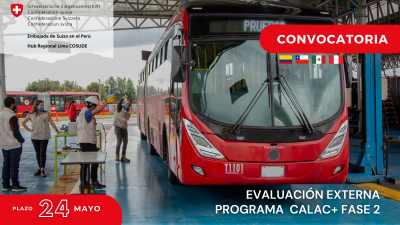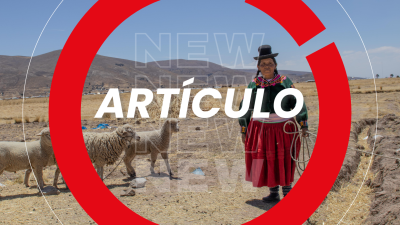The new phase of the project “The Water Footprint in Peru and Chile”
Ensuring the availability and sustainable management of water and sanitation for all: one of the goals of the 2030 Sustainable Development Agenda (SDG 6), established in the United Nations framework in 2015, in response to the water crisis, the constant loss of water sources at global level and the loss of their quality.
SuizAgua proposes a new form of cooperation through a public-private alliance that aims to propose innovative tools for the best water management and to establish a joint platform for measuring and reducing the water footprint and discuss best practice, in the companies that decide to work towards efficient water management.
The SDC Swiss Cooperation Global Programme Water Initiatives, since 2010 through the SuizAgua Project in Columbia, Peru and Chile, has brought together over 20 major companies which have decided to measure, reduce their impact and manage their water efficiently, through corporate social responsibility to the benefit of their stakeholders, maximizing their positive impact in social, economic and environmental terms. In Peru, five leading companies with operations in the country decided to take part in the initiative: Camposol, Duke Energy Perú, Mexichem, Nestlé Perú and UNACEM; in Chile: Clariant, Mall Plaza, Nestlé, Polpaico and Tinguiririca Energía; in Columbia, Clariant, Holcim, Nestlé, Syngenta, Argos, Grupo Familia, Grifftit Laboratorios, Haceb, Uniban, Agrícola Sara Palma and Mineros S.A.
This year, 2017, following a rigorous selection process, the second phase of the project has started in Peru and Chile with an execution period up to 2020 geared to intervention on four levels: i) the water footprint assessment, to handle the impacts associated with its use with a life cycle focus; ii) commitment to the value chain, promoting the participation of suppliers and clients in the reduction of impacts on the resource; iii) collective action in the river basins, promoting action for sustainable water management; and iv) corporate strategies, integrating the water risk management into the business strategy.
In accordance with its cooperation strategy, SDC will establish collaboration alliances with the counterparts of national governments, the National Water Authority in Peru, and the Sustainability and Climate Change Agency in Chile and the participation of academics.
Why measure the water footprint in companies?Assessing a company’s water footprint means we can take action to cut water consumption within and beyond the company, in other words, improve efficiency in the productive processes, reduce internal domestic consumption and require suppliers to be water-efficient.

Implementing the water footprint beyond companies means carrying out social responsibility activities around water with surrounding communities and with clients. In this way, by aligning all their strategies for reducing the water footprint, companies generate a new value: being a Water-Responsible Company, a stamp which will differentiate companies and will generate new ties of loyalty with their collaborators, their consumers and their nearby communities.
Links of interest:
Web Project: SuizAgua Andina
Project SuizAgua Andina, project fiche: Swiss Embassy/Swiss Agency for Development and Cooperation (SDC)
Info graph: The Water Footprint We Consume








